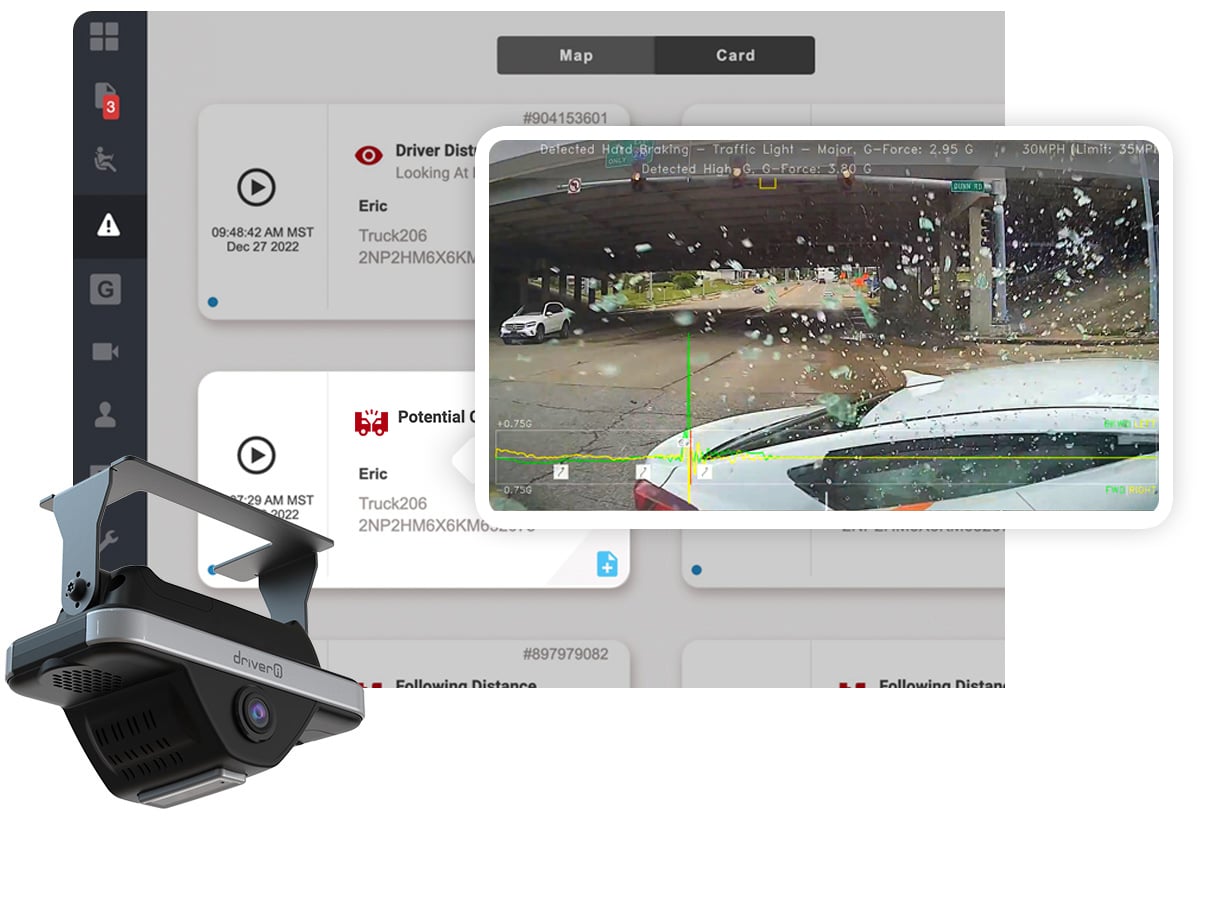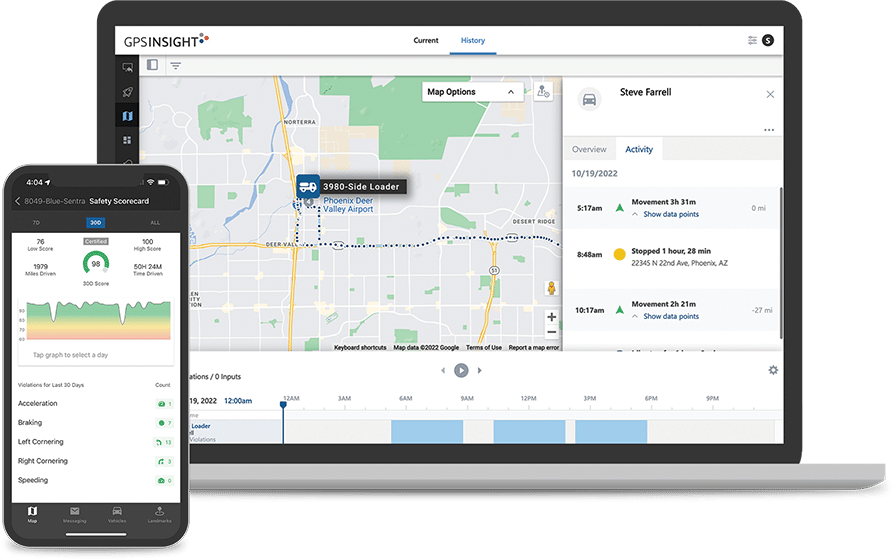
Mitigating Nuclear Verdict Risks:
Best Practices for Fleets
There are best practices fleets can implement, like the use of smart dash cameras and GPS tracking, to help combat the rising trend of nuclear verdicts.
Recent history of nuclear verdicts
There has been a notable increase in the frequency and size of nuclear verdicts.
The American Transportation Research Institute claims that awards have increased by almost 1,000% from 2010 to 2018. To put that into perspective, a jury award that used to be $2.3 million has jumped to $22.3 million. This is closing the doors for many trucking companies and small insurance carriers.
In one case, the verdict reached $1 billion.
Several factors have contributed to this trend, including changing jury demographics, increased sympathy towards plaintiffs, and advancements in technology that make it easier for plaintiffs to present persuasive evidence. Social media and the widespread availability of dashcam footage have made it easier for juries to witness and empathize with victims, potentially swaying their decisions towards larger judgments. The trucking industry has been grappling with this phenomenon and seeking ways to defend against these massive awards.
These verdicts have far-reaching consequences for various stakeholders in the legal and insurance industries. Law firms, both plaintiff’s counsel and defense attorneys, invest significant resources in preparing for trial, including extensive research, expert witnesses, and compelling closing arguments. The plaintiffs’ bar, comprised of trial lawyers experienced in handling personal injury cases, strategically employs tactics like the reptile theory to elicit sympathy and sway the jury towards awarding high damages.
Insurance companies and carriers, faced with these staggering payouts, may respond by raising premiums to cover the increased risk. The insurance industry as a whole faces significant challenges, as even a few nuclear verdicts can impact their profitability and stability.
Additionally, federal courts and different jurisdictions are grappling with the implications of these verdicts, with some calling for reform. Such verdicts often include punitive damages and significant non-economic damages, emphasizing the financial burden on defendants. As a result, the term ‘nuclear verdicts’ has become a buzzword in legal circles, highlighting the need for balance and fairness in the pursuit of justice.
Financial burden
Nuclear verdicts pose a significant financial burden on fleets. The size of these judgments can exceed the insurance coverage held by many companies, leading to severe financial strain or even bankruptcy. As a consequence, insurance premiums have skyrocketed, making it increasingly challenging for fleets to maintain affordable coverage. This issue has created a sense of urgency within the industry to address the root causes behind these excessive verdicts and identify proactive measures to reduce their occurrence.
Best practices to fight against nuclear verdicts
To combat the risks associated with nuclear verdicts, fleets can implement a range of best practices. Two key tools that have shown promise are smart dash cameras and GPS tracking systems.

Smart dash cameras: Smart dash cameras offer fleets the ability to capture high-quality video footage of accidents or other incidents. These cameras use advanced technology such as artificial intelligence to automatically detect and record events such as harsh braking, sudden lane changes, or collisions. This footage can provide valuable evidence in the event of a lawsuit, potentially influencing the outcome in favor of the fleet. Additionally, smart dash cams can be used as a training tool, allowing fleets to identify and address risky driving behaviors before accidents occur.

GPS tracking: GPS tracking systems provide fleets with real-time visibility into their vehicles’ locations, routes, and behaviors. By monitoring factors such as speeding and harsh acceleration, fleets can proactively identify and address unsafe driving practices. In the context of nuclear verdict risks, GPS tracking data can serve as valuable evidence to refute false claims or allegations made by plaintiffs. Accurate and verifiable data can impact the outcome of legal proceedings, potentially leading to more favorable settlements or judgments for fleets.
One fleet’s story…and how camera technology saved the day
“Unfortunately, one of our customers was recently involved in an accident that resulted in a fatality,” said Todd Parks of GPS Insight. “All of the witnesses and bystanders testified to officers that the truck driver was at fault.”
Having dash cams made an incredible difference in the outcome.
“Luckily, this vehicle had Driveri technology,” Parks said. “Within moments, the fleet safety manager was able to share the incident video with the officer. After review, the officer was able to clearly identify that the truck driver was not at fault. The driver went from investigated and potentially prosecuted – to completely exonerated – in less than an hour.”
Driveri not only saved the customer from potentially devastating financial consequences, but also shows the importance of these tools in the judicial world.
In conclusion, nuclear verdicts pose a significant threat to the financial well-being of fleets operating in the trucking industry. However, fleet operators can take steps to protect their businesses and mitigate the risks associated with these verdicts.
Shape the outcome
Implementing advanced technologies like smart dash cams and GPS tracking systems can provide evidence and data that can shape the outcome of legal proceedings. By leveraging these tools, fleets can not only improve safety and operational efficiency, but they also increase their chances of a favorable outcome in the event of a lawsuit. As the trucking industry continues to navigate the challenges of nuclear verdicts, technological advancements will play a large part.
Want more information on GPS Insight technology? Learn more by downloading our ebook about GPS tracking and dash cams.
Get a Price Quote
Ready to see how GPS tracking and camera technology can work for your fleet?





